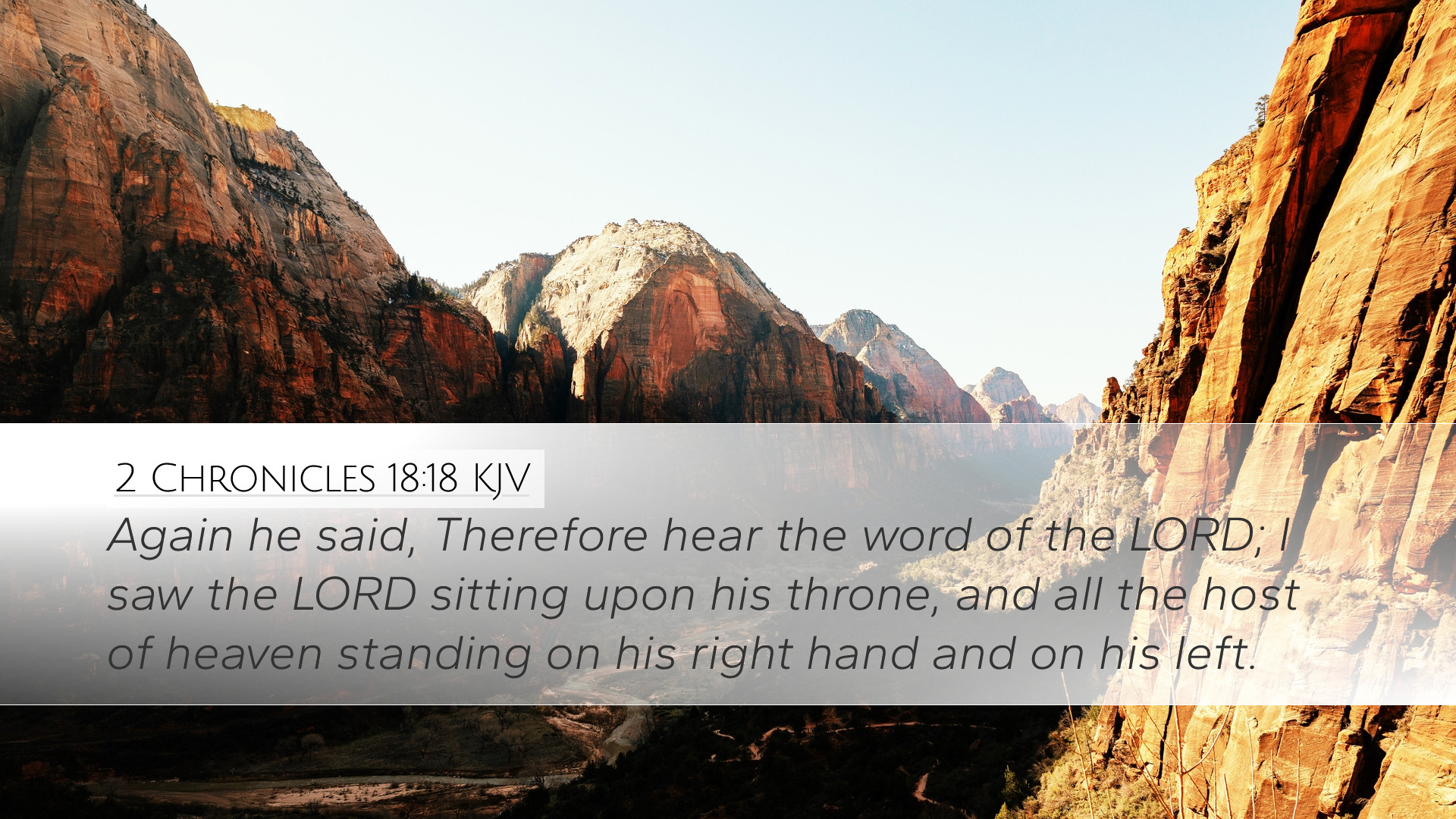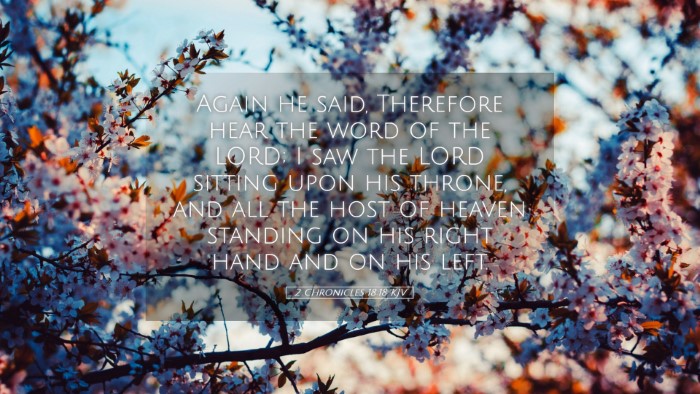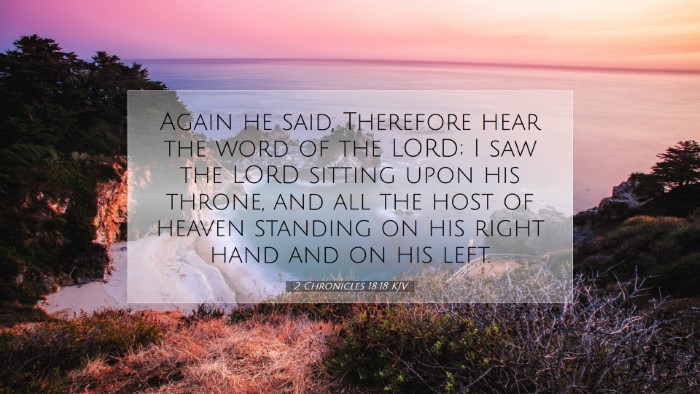Commentary on 2 Chronicles 18:18
Verse: "Again he said, Therefore hear the word of the LORD: I saw the LORD sitting upon his throne, and all the host of heaven standing on his right hand and on his left."
This verse encapsulates a profound moment in the narrative of King Jehoshaphat and King Ahab. The prophetic dialogue that unfolds here is rich in divine revelation, highlighting the importance of discernment in leadership and the consequences of unholy alliances.
Historical Context
2 Chronicles 18 details the alliance between Jehoshaphat of Judah and Ahab of Israel, a union that stemmed from political convenience rather than spiritual alignment. This alliance leads Jehoshaphat to inquire of the Lord concerning military ventures, which is commendable. However, it soon becomes apparent that Ahab's motives significantly differ from those of Jehoshaphat.
Exegesis of the Verse
The passage begins with a call to listen to the word of the Lord. This call emphasizes the necessity of divine revelation in decision-making processes, especially for leaders. The prophet, Micaiah, presents an image of the Lord on His throne, a powerful metaphor for God’s sovereignty and authority over all creation.
God's Sovereignty
Matthew Henry notes that the image of God on His throne signifies His ultimate control over events and His judgment on human affairs. Micaiah’s vision reminds leaders of their allegiance to divine will and not merely to their political interests.
Host of Heaven
The "host of heaven" standing beside the Lord suggests a cosmic council interacting with Him regarding the affairs of the earth. Adam Clarke elaborates on this concept, indicating that it represents angelic beings and perhaps even a demonstration of God's multifaceted administration in guiding human history. Such imagery affirms the notion that God's plan transcends human understanding.
Insights on Leadership and Prophetic Words
Albert Barnes points out that prophetic insight is granted as a divine gift, enabling the seer to perceive truths that are otherwise veiled to ordinary understanding. The phrase "hear the word of the LORD" is imperative, showing that true leaders must not only seek God but also heed His words and warnings.
The Danger of Deception
In this context, Jehoshaphat had already heard numerous false prophecies from Ahab's prophets. The contrast between the true prophet Micaiah and the court prophets serves as a cautionary tale for both leaders and congregations about the perils of disregarding divine truths in favor of popular or comforting messages.
Theological Implications
The verse invites deep theological reflection on the nature of God’s governance and His active involvement in human events. God is depicted not as a distant deity but as one who engages intimately with creation. His throne is not only a symbol of power but also of a relational dynamic with both human leaders and the angelic host.
Understanding God’s Will
This quintessence of divine communication challenges modern readers to discern between falsehood and truth. It insists on the responsibility of leaders to act in accordance with divine revelation. Matthew Henry contends that willingness to hear God’s directive is crucial, as it leads to righteous paths and outcome-oriented decisions.
Practical Applications
-
Prayer for Discernment: Leaders must be committed to prayerful discernment to hear God’s direction clearly.
-
Seeking Truth over Popularity: The church today must prioritize God’s truth over popular opinion, ensuring that prophetic voices align with Scripture.
-
Understanding Divine Sovereignty: A profound respect for God's sovereignty will instill confidence and courage in facing challenges, knowing He reigns over all.
Conclusion
2 Chronicles 18:18 serves as a powerful reminder of God’s intimate knowledge of earthly affairs and His sovereignty over them. The prophetic announcement in this verse illustrates the necessity of listening to God's voice. As pastors, students, theologians, and Bible scholars engage with this passage, it is paramount to reflect on the implications of prophetic discourse within both historical and contemporary contexts.
In a world replete with competing voices, the lesson of Micaiah stands timeless: True leadership must be rooted in a commitment to seek and obey God's directive amidst an array of human counsel.


